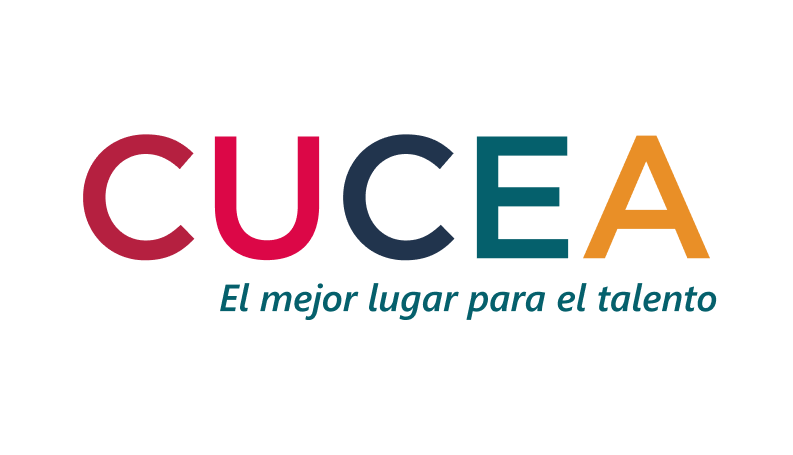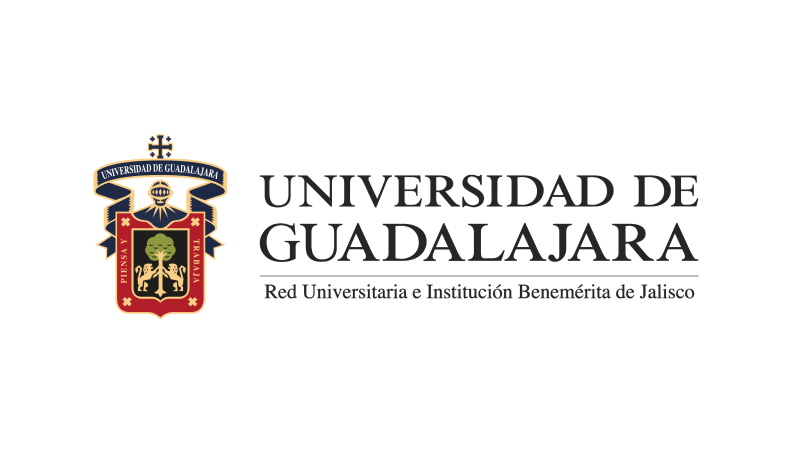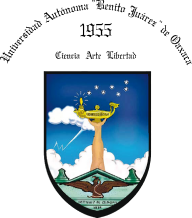A Multidisciplinary Approach to Childhood Obesity Prevention in Mexico (MACOP – MX) is a collaborative project between the University of Göttingen, the Universidad de Guadalajara and the Universidad Autónoma “Benito Juárez” de Oaxaca that is supported by the German Academic Exchange Service (DAAD) with funding from the Federal Ministry for Economic Cooperation and Development (BMZ).
Project objectives:
- To capacitate professionals to deal with the complexities of the concept of childhood obesity and health promotion
- To promote collaborative and interdisciplinary research in different regions in Mexico
- To provide policy makers with evidence on the effectiveness of different policies
- To generate knowledge for the national and international community on the factors that promote or prevent childhood obesity
It is proposed that the partner universities will work together in the development of a multidisciplinary and international orientation line to train professionals in topics related to childhood obesity prevention and health promotion. The study program consists on summer- and winter camps in Guadalajara, Oaxaca and Göttingen, online classes and research projects in cooperation with local stakeholders and additional experts. Students and practitioners participating in the proposed curriculum can obtain international certificates, issued by all participating universities, designating them trained professionals with a multidisciplinary focus on childhood obesity prevention and health promotion.
The orientation line is primarily - but not exclusively - directed to

Learning outcomes
The classes within the orientation line on “Childhood Obesity Prevention and Health Promotion” aim at a comprehensive understanding of the multifaceted causes, consequences, and dynamics of childhood obesity to promote health and development in Mexico. The orientation line will be based on current empirical results and promote further research on the issue. In order to obtain a profound knowledge of childhood obesity in its individual, political, social, cultural, and economic dimension, the orientation line combines basics of development economics with sport sciences, medical, nutritional and psychological aspects. Particular attention is paid to development-relevant factors which affect both health standards and economic growth such as inequality, poverty, conflict, infrastructure, and productivity. Interregional and international cooperation between the universities and local stakeholder will ensure sustainability of the project und contribute to a better understanding of regional disparities between urban and rural Oaxaca and Guadalajara.
The following targets guide the formulation of specific learning outcomes within the classes of the orientation line:
- Advanced research skills
- Independent knowledge acquisition and critical thinking
- Professionalism and vocational orientation
- Internationalization and intercultural learning
- Diversity competence

Advanced research skills
The orientation line aims at teaching a wide range of approaches of different disciplines. Concepts of social sciences and economics as well as qualitative and quantitative methods of empirical social research are taught as an essential basis for further studies in the field. During a summer school the acquisition of general knowledge on child development, childhood obesity and research methods takes center stage. The following courses targets a specialization of the acquired skills and application in current research and the professional world in an internship while continuously learning about the challenges of childhood obesity from a medical and economical perspective. The results of the internship will be presented and critically discussed in a winter school where a further class on current issues in Mexico will be included. The final goal is to enable participants to integrate their newly acquired skills and perspectives to solve real-world problems both in the field and in academics.

Independent knowledge acquisition and critical thinking
It is intended that participants of the orientation line will be able to critically assess and reflect on current issues pertaining to childhood obesity from an economic, political, and health perspective. Emphasis is placed on the use of different theoretical and methodological approaches for well-founded argumentation. A research-based approach to teaching and learning confronts participants with the complexities of obesity as a social and political phenomenon. The problem-solving capacities of participants are fostered by numerous guest lectures held by academics and practitioners. Participants’ inputs, debates and discussions are essential to achieve the aspired target and to foster exchange between different disciplines. The relevance of the Master’s thesis of participating master students underlines the emphasis placed on this outcome.

Professionalism and vocational orientation
Research and practical seminars are a core feature of the orientation line aiming to enable participants to apply the theoretical background in national and international projects. Learning outcomes include the ability to become familiar with current developments in the health sector quickly and to contribute to the theoretical and practical development of the area. The international course enables participants to act competently in international projects and professions. Thus, graduates will have the opportunity to work in ambitious positions in the educational, health, sport, and political sector. Participants are encouraged to undertake internships over the course of the program to apply their acquired skills in real life scenarios and to build networks for a successful transition into the job market.

Internationalization and intercultural learning
With an interregional and international approach, the orientation line is able to show the complex system of structures that underlies the issue of childhood obesity. The program conveys essential knowledge about systems, structures and development with examples from different countries across the globe. Based on the diverse composition of teachers and participants’ groups, the program aims to foster intercultural learning through curricular and extra-curricular activities. Participants’ inputs and a participatory approach to teaching mark a critical and important feature to achieve such outcomes.

Diversity competence
Diversity is to be understood from three perspectives. First, special attention is paid to a mix of Mexican, German and international participants in the course. Second, a wide range of subjects from different disciplines is taught. Third, contents of the course will be dedicated to issues like age, gender, ethnicity, sexual orientation, and disabilities with regard to childhood obesity.
Georg-August-Universität Göttingen
Prof. Dr. Sebastian Vollmer
Project head
Professor of Development Economics.
- Affiliation: Chair of Development Economics/ Centre for Modern Indian Studies (CeMIS)
- Research interests: Linkages between poverty and health in low- and middle-income countries
Nina Eisenburger
Project Coordinator
Doctoral Student at the German Sport University Cologne
- Affiliation: Chair of Development Economics/ Centre for Modern Indian Studies (CeMIS)
- Research interests: Health Promotion, Psychosocial and Mental Aspects of Health
Universidad Autónoma “Benito Juárez” de Oaxaca
Dr. Juan José Alpuche Osorno
Professor of Biochemistry
- Affiliation: Research Center Faculty of Medicine UNAM-UABJO, Faculty of Medicine and Surgery
- Research interests: Basic biochemistry of energetic metabolism and innate immunology in invertebrates
Universidad de Guadalajara - Centro Universitario de Ciencas de la Salud
Dr. Juan Ricardo López Y Taylor
Professor of the subject: Design of Physical Activity and Health Programs.
- Affiliation: Department of Human Movement Sciences, Education, Sports, Recreation and Dance
- Research interests: Exercise physiology and physical activity
Dr. Edtna Jauregui Ulloa
Professor of Health Promotion and Counseling; Exercise prescription in chronic disease; Intervention Program Design.
- Affiliation: Institute of Sciences Applied to Physical Activity and Sport (ICAAFYD), Jalisco Health Services (SSJ)
- Research interests: Health promotion, Exercise as medicine
Universidad de Guadalajara - Centro Universitario de Ciencias Económico Administrativas
Dr. Willy W. Cortez
Professor of Economics.
- Affiliation: Department of Quantitative Methods
- Research interests: In general, problems associated with poverty and inequality in income distribution: economics of crime, public health, labor market informality, and economic growth
Dr. Rafael S. Espinosa Ramirez
Professor of Economics.
- Affiliation: Department of Economics
- Research interests: International economics, psychology and economics, and institutional economics
Dr. Baruch Ramírez Rodríguez
Professor of statistics, econometrics, microeconometrics, poverty and inequality.
- Affiliation: Department of Quantitative Methods
- Research interests: Economic development issues, particularly poverty, labor market and health economics
Dr. Isai Guizar Mateos
Professor of Economics.
- Affiliation: Department of Economics
- Research interests: Applications of numerical methods and microeconometrics to the analysis of financial development and risk management issues in developing countries
The COMO Project
MACOP-MX is continuously looking for international and interdisciplinary networking and exchange. For this reason, we collaborate with the COMO project to face the problem of childhood obesity in Mexico with united forces. Using an evidence-based approach, the Childhood and adolescent Obesity in MexicO: evidence, challenges and opportunities (COMO) project aims to create a centralized database that synthesizes relevant information on the extent, nature, impact, and costs of childhood and adolescent obesity in Mexico, as well as interventions for its prevention and management. Click here to take a look at the extensive collection ofresources on the COMO website.
Contact information
GEORG-AUGUST-UNIVERSITÄT GÖTTINGEN
Centre for Modern Indian Studies (CeMIS)
Chair of Development Economics
Nina Eisenburger (Project Coordinator)
Waldweg 26
37073 Goettingen
Germany
E-Mail: nina.eisenburger@uni-goettingen.de





